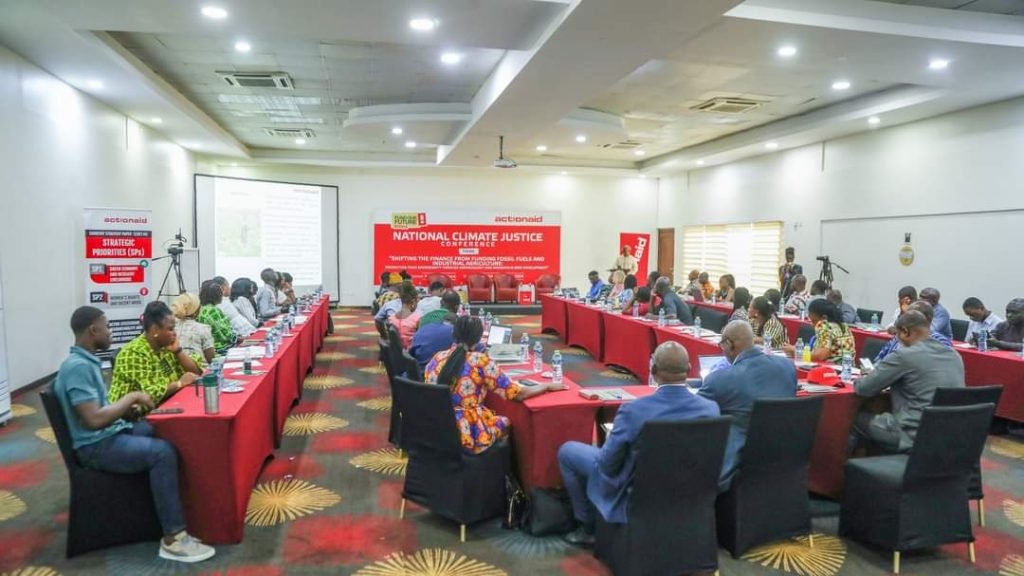Accra, Sept. 26, GNA – ActionAid Ghana has urged the Government to redirect its investments from fossil fuels to agroecology, emphasizing the critical role sustainable agricultural practices play in addressing climate change.
The International Non-Governmental Organisation (NGO) called for the critical need to redirect financial flows away from environmentally harmful practices, such as fossil fuel investments and industrial agriculture to promote climate resilience.
Such sustainable alternatives, the NGO said upheld food sovereignty, including agroecology and indigenous seed development.
Speaking at the opening of a National Conference on Climate Change on the theme: “Shifting the Finance from Funding Fossil Fuels and Industrial Agriculture to Promoting Food Sovereignty through Agroecology and Indigenous Seed Development,” Mr John Nkaw, Country Director of ActionAid Ghana, highlighted the government’s substantial financial support for fossil fuel exploration.
The two-day conference brought key stakeholders from government, civil society, academia, the private sector, and communities to discuss and strategise on the critical need to redirect financial flows away from environmentally harmful practices,
Participants discussed how to address the preservation of indigenous seeds as a cornerstone to food sovereignty and the agricultural heritage of communities but also as a vital resource for ensuring resilient and diverse food systems in the face of climate change.
ActionAid’s groundbreaking report on the corporate capture of public finance found that climate-destructive sectors were benefiting from subsidies amounting to an average of US$677 billion in the Global South every year.

The amount, Mr Nkaw said, could pay for schooling for all sub-Saharan African children 3.5 times over.
He further reiterated that those funds could have been better utilized by investing in climate-resilience through sustainable agriculture which would employ most Ghanaians.
The Country Director urged the Government to prioritize agroecology, a farming method that promoted biodiversity and reduced dependency on environmentally harmful industrial agricultural practices.
“We are calling on the government to invest in a just transition that directs more resources into renewable energy and sustainable agriculture. This approach will help achieve the Sustainable Development Goals across the world,” Mr Nkaw added.
He said protecting and promoting Indigenous seeds could empower local farmers, enhance biodiversity, and support agroecological practices that sustain the environment and livelihoods
This call to action is particularly timely considering the recent drought in northern Ghana, which severely impacted farmers.
Professor Seidu Alhassan, the Vice-Chancellor of the University for Development Studies (UDS), said many farmers suffered devastating losses because of the recent drought in northern Ghana severely impacting farmers with some moved to tears as their crops withered.
The drought, he added, not only affected their livelihoods but also left many farmers feeling discouraged about future agricultural investments.
Prof Alhassan said, “If our policymakers and researchers can plan effectively to prevent such events, it would be better than waiting until the Government is forced to mobilize $8 billion to address the damage. We must act now to prevent such crises.”
Professor John Kuwornu, Acting Pro-Vice Chancellor of the University of Energy and Natural Resources (UENR), emphasized ActionAid’s long-standing commitment and dedication to combating climate change through academia.
“ActionAid is supporting universities in developing capacity-building programmes to raise climate change awareness at all levels of society, including farmers, their children, and the elderly,” he stated.
GNA